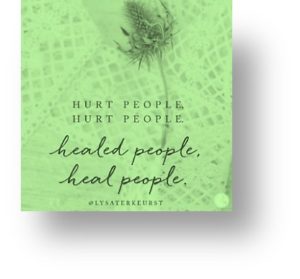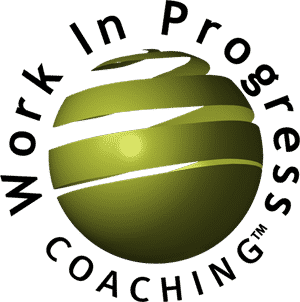IF, THEN
IF saying “Let’s move on” means “get over it, forget about it, let bygones be bygones,” THEN we’re also saying, “Give up. We can’t deal with it.”
IF saying “Let’s move on” means “go forth without regret or thwarted expectations, and with a clear conscience and our integrity intact,” THEN we’re also saying, “Stand up. We can deal with this.”
IF merely saying the words, “Let’s move on,” actually made it so in our experience, THEN we would say “let’s move on” morning, noon, and night. But it just isn’t so.
Just saying “Let’s move on” does not prevent the impact of the experience from which we want to move on from throwing a shadow of distrust on our relationships, from diminishing our sense of what’s possible.
That’s not moving on. That’s being stuck.
Don’t believe me, believe yourself. Our experience tells us just saying those words alone won’t free us from what just happened. Remember when you tried to just get over and forgive and forget that person for what was said or done that caused a rift in your relationship? Neither of you addressed the situation. You choose to sweep it the rug. Yet, every time you thought about them, the feelings of being disrespected or dismissed were right there.
Without other words and the actions those words evoke, we’ll drag the hurt and mistrust into what we do next and who we do it with.
Other words
The other words needed to move forward with freedom, possibility, and love are words of personal accountability.
If insults and lies are spoken, then apologies need to be spoken with positive intent, not spoken as a politically correct, checkbox gesture. If laws are broken, then they need to be upheld. Justice can be blind, we can’t. Turning a blind eye doesn’t let us move on. Excusing hurtful or unlawful behavior continues to widen the gap within us and them. That’s not moving on. That’s being less than who we are.
What can You do?
The following is written to “you”, not “we.” Why? All change begins with the individual.
ONE: Use your voice. Tell those who have the responsibility to fulfill their duties. That will let you reclaim some of our sense of self. But without a personal relationship with our governmental representatives, we may still feel like we’re tilting at windmills.
TWO: Listen to what you advise others and apply your words to yourself. Assess your relationships. Take action to close the gap between how you intend to show up and how you are showing up. A complete assessment includes what others say about how you show up.
THREE: Embrace the concept that attending to the health of our relationships is a recurring responsibility. Not one and done.

Subscribe
Get Camille's latest posts!
